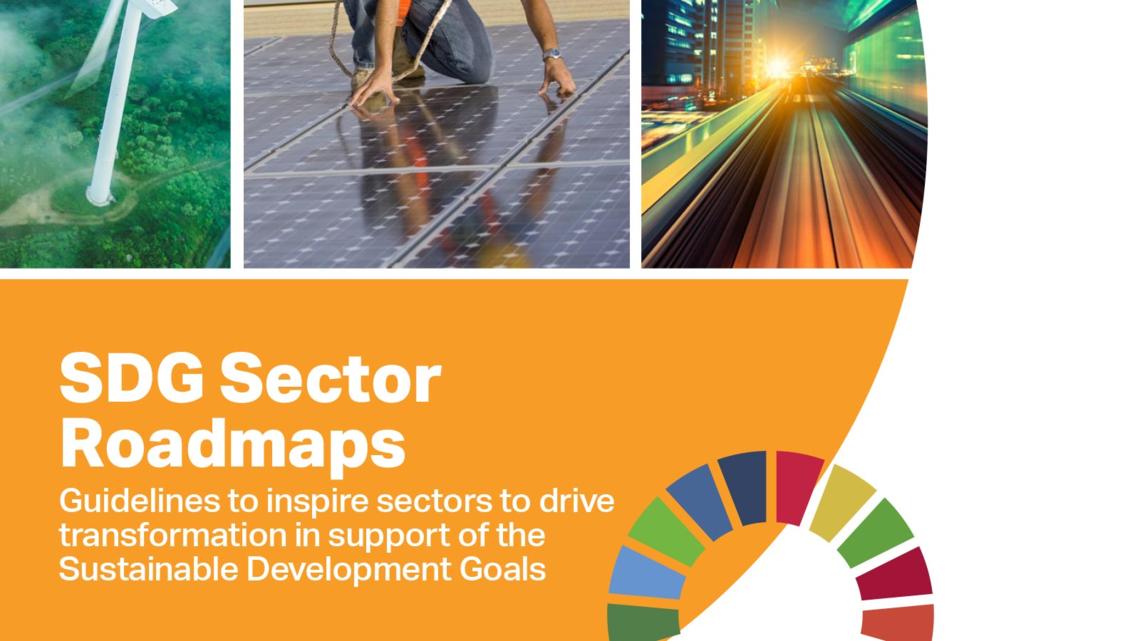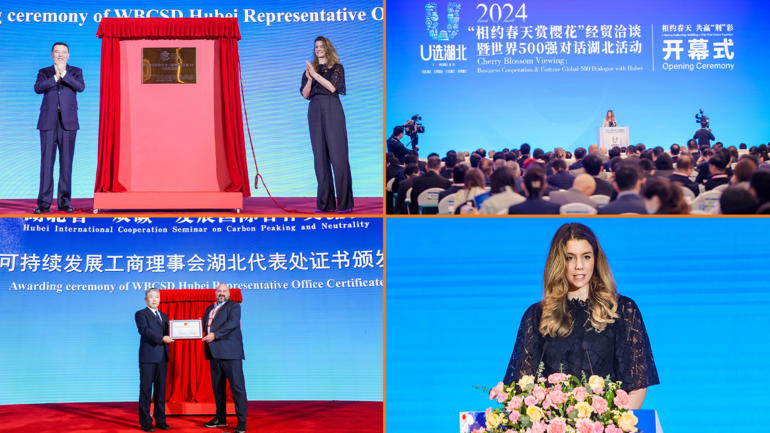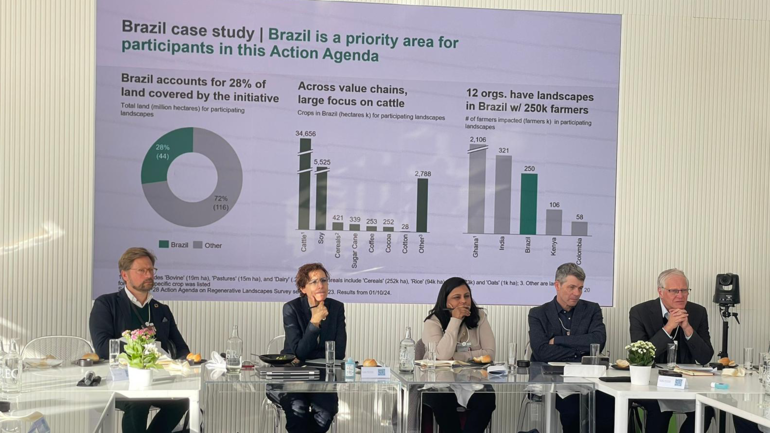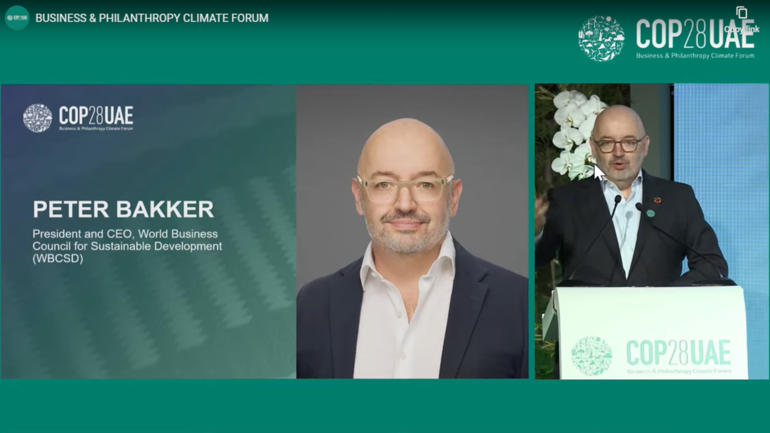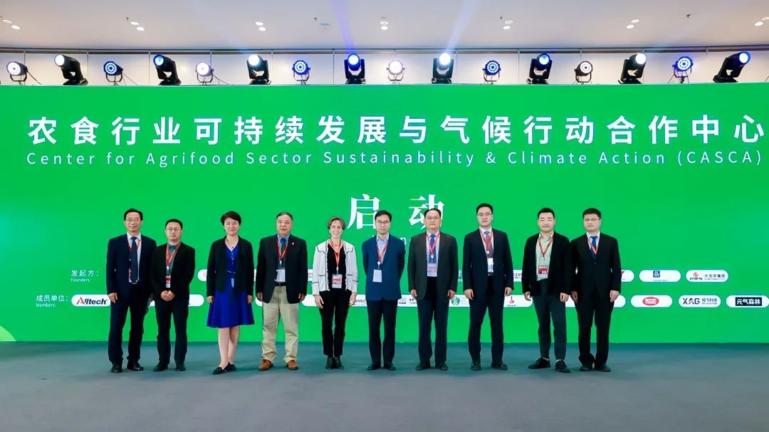Our world is facing unprecedented global challenges in the form of a climate emergency, nature loss, and rising inequality. As the risks associated with these challenges continue to rise, we need business leaders to rally behind a bold and urgent transformation agenda.
When thinking about the kinds of transformation we need, the United Nations’ Sustainable Development Goals (SDGs) provide the private sector with a unique lens through which to translate global needs and ambitions into tangible business solutions. By strategically integrating the SDGs into their business models, companies are better placed to build resilience, unlock new commercial opportunities and establish an enduring license to operate on the road to 2030 and beyond.
We are now over one third of the way through the timeframe set for the realization of the SDGs and despite progress in a number of areas, there is widespread recognition that the world is not on track to achieve the ambitions of the SDGs by 2030. This unacceptable lack of progress has been underlined and exacerbated by the unfolding of the COVID-19 pandemic. The crisis has laid bare multiple risks and fragilities across our economic, social and environmental systems, underlining in a merciless fashion how far away we are from achieving the SDGs and in many instances knocking us even further off course.
Despite the lack of progress and the challenges that lie ahead, the SDGs are still the most comprehensive blueprint for shared prosperity for people and the planet and are more important than ever before. They provide us with a critical universal framework around which to structure our efforts to build back better. Collective and collaborative action is essential to creating a pace and scale of change that we have not achieved to date, and a common framework is essential to this collaboration.
Against this backdrop, WBCSD and its member companies continue to prioritize efforts to make the SDGs directly actionable for business. Our recent landmark publication Vision 2050: Time to Transform supports this ambition through nine transformation pathways that are fully aligned with the SDGs and the goals of the Paris Agreement, and provide an important framework to guide business action in line with the urgency of the challenges that we face as a global society.
At a more granular level we also perceive there is critical value in bringing leading representatives from individual sectors together to align around the precise actions that will enable their industry to maximize its contribution to the SDGs.
In its 2017 Better Business, Better World report, the Business & Sustainable Development Commission made a compelling case for companies to come together with sector peers to develop “SDG roadmaps” to guide their sector’s shift to sustainable development in line with the SDG agenda. With a view to translating this concept into practice, in 2018 WBCSD and ERM published a set of guidelines on how to develop an impactful SDG sector roadmap. These guidelines provide an easily accessible three-step framework that is robust, systematic and can be tailored to any sector or sub-sector regardless of scale or geographic coverage.
Since the launch of these guidelines, over 70 companies and associations from seven sectors have now worked with WBCSD and ERM to apply this framework and develop SDG roadmaps for their respective sectors. These efforts have created important reference points that have helped to accelerate and optimize SDG impact across the chemical, Indian cement, forest, US agriculture, electric utilities, oil and gas and tire sectors.
With sustainability now at the center of many business models and strategies, SDG roadmaps can be used as a tool to help sectors lead, innovate, and challenge their approaches to shape a more sustainable future. As we enter a critical make-or-break “Decade of Action” to deliver the SDGs by 2030, we hope that these guidelines and the pioneering roadmaps that have already been developed can inspire even more sectors to identify the common solutions, opportunities and partnerships needed to help achieve the ambitions of the SDGs in the context of their industry.
We would like to take this opportunity to commend the leadership that has been shown by a number of sectors through the development and implementation of their SDG sector roadmaps, while also issuing a call for other industries to explore the power of this framework to help lead, innovate, and challenge their approaches to shape a more sustainable future.
Keryn James – CEO, ERM
Peter Bakker – President & CEO, WBCSD

